Do babies need cows milk after weaning from breast milk or formula? Is raising an infant vegan safe and healthy? We dig into the challenges and offer tips to do it right.
Nutrition is complicated and CONTROVERSIAL. While scientists are still trying to understand the role of nutrition in human physiology, there is research out there to help guide policies and professional recommendations. Recently, Dietitians of Canada and the Canadian Paediatric Society released a statement about the rise in plant-based beverages for children as an alternative to cows milk for babies. While the article does provide sound, research-informed recommendations, controversy ensued. In fact, people from both sides were going back and forth on many news comment forums.
Now, I understand that nutrition is a touchy subject, and everyone has the right to their opinion, however, as a Dietitian, it’s important for me to put on my research hat and go through the facts.

meet sarah remmer, Rd
So, I decided to speak with a fellow colleague, Sarah Remmer, RD, who’s an Alberta-based Registered Dietitian that specializes in child and family nutrition. This kind of stuff is right up her alley. She will provide a wealth of information about about plant-based food and beverages. She’ll discuss whether or not babies need cows milk. Finally she’ll share how to do vegetarianism or veganism the right and healthy way.
Let’s dive in!
Dietitians of Canada and Canadian Position Statement
With the rise in plant based beverages, this state was released. As well, there has been an increase in nutrition deficiencies, and even a death. Becky Blair, a spokesperson for Dietitians of Canada, states this. “The challenge for parents is conflicting messages. They read that these drinks are considered ‘healthier’ on social media or hear misinformation about cows milk or fortified soy beverage…The reason children can become malnourished is that these beverages contain very little protein and are very low in fat and calories.” And yes, this is true. Besides fortified soy and pea beverages, plant-based beverages such as almond, coconut, hemp, rice, and potato milk are very low in protein.

Paediatric Society Position Statement
Catherine Pound, a paediatrician and spokesperson for the Canadian Paediatric Society, stated “What parents often don’t realize is that some plant-based beverages are not fortified with any minerals or vitamins; these drinks are low in all nutrients except carbohydrate, in fact sugar is often the second ingredient after water…in the case of allergies, or other concerns, I recommend that parents speak with a dietitian to ensure all nutrient needs, including protein, fat and calories are being met with an age-appropriate diet.”
This sugar piece CAN also be true if we’re talking about sweetened (called “Original”) non dairy vegan milk alternatives. We’ve gone into detail analyzing, comparing and contrasting unsweetened versions of non dairy vegan milk alternatives here.
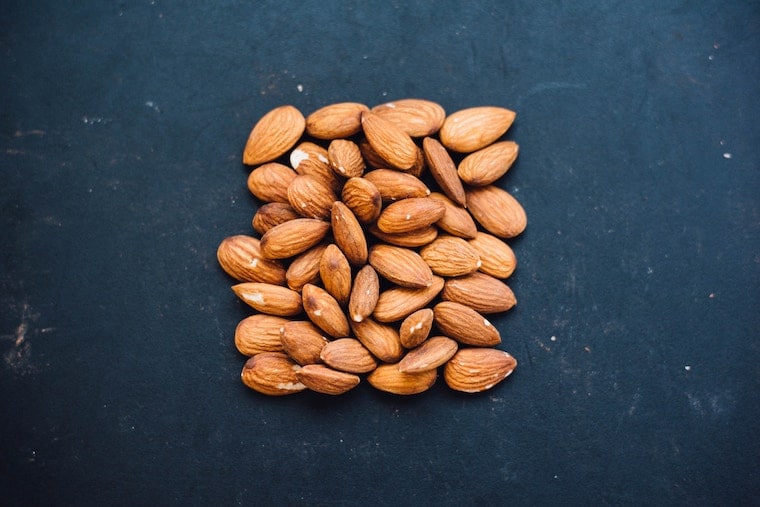
I understand, however, that parents who are themselves following a plant-based diet, may want to find an alternative that best works for them and their family. So here we will take a look at what the research says on whether babies need cows milk to thrive.
Nutrition Basics for Baby
First, let’s start out by understanding what a growing child needs. According to a systematic review on vegetarian and vegan diets in children, vegetarians and vegans (in particular) need to pay attention to important nutrients such as protein, iron, vitamin B12, calcium, vitamin D, omega-3 fatty acids, and iodine. Because infants, children, and adolescents have higher calorie and nutrient needs based on their size, they are particularly vulnerable to nutritional inadequacies.
protein
Protein is important for the development of basically everything in our body, from muscles and enzymes to even the tiniest of cells. Amino-acids, the “building blocks” of protein, are chained together to make different protein structures in the body. There are 20 amino acids, 11 of which our body can make (called “nonessential” amino acids) and 9 our body cannot make (called “essential” amino acids). While animal-based proteins have a complete amino-acid profile, the amino-acid profile in plant-based proteins is generally not complete, except for soy, hemp, quinoa, and buckwheat. As long as you eat a diet with a lot of variety, you should have no problems getting all the amino-acids you need.
iron
Iron is important for the development of the central nervous system, especially in the first few years of life because of its role in brain and spine development, such as myelination (a coating around nerve cells to help with delivering signals). As well, iron is important for the development of red blood cells, which carry oxygen throughout our bodies. This delivery of oxygen is important for brain health. Some studies reported that vegetarian and vegan children consumed more iron than the control groups. However, the authors noted that it is important to understand that iron from plant sources have lower bioavailability of iron and therefore would need to consume more than those who eat meat.
Therefore, this does not mean that they have better iron stores. In fact, studies showed that over half of vegetarians had low iron stores. Health Canada recommends feeding your child iron-rich sources of food, such as iron-fortified cereals and meat/meat-alternatives (e.g., legumes) a few times a day starting at 6 months, since an infant’s iron stores become depleted around this time. Check out our full Iron Guide with lots of ideas on how to get enough iron for baby here!

vitamin d & calcium
Vitamin D and calcium are important for bone health. The authors noted that those on vegetarian and vegan diets are at risk of low vitamin D and calcium. Some studies reported that children on these diets had lower osteocalcin levels. However, vitamin D is hard to obtain through food alone and most people rely on the sun for vitamin D synthesis. The authors recommend supplementation for those who live in Northern areas or are of darker pigment.
It is important to note that there are two types of vitamin D available via supplements: vitamin D2 and D3. If you choose to refrain from animal products, vitamin D2 would be your choice. It’s unclear if vitamin D2 is as effective as vitamin D3. Health Canada recommends a vitamin D supplement (400 IU) for young children that are receiving breastmilk.
vitamin b12
Vitamin B12 is important for human metabolism, and deficiencies can lead to issues with blood and brain development. For infants and toddlers, deficiency can result in failure to thrive (insufficient growth), movement disorders, and developmental delays. Studies from the systematic review showed that most children were provided supplements to help with vitamin B12 intake since this vitamin primarily comes from animal products. The authors stressed that if the child is not supplemented, then serious developmental consequences could arise. Therefore, children should be screened for B12 deficiencies if vegetarian or vegan.
iodine
Iodine plays an important role in thyroid hormone production and can therefore have an impact on mental and physical development. In Canada, table salt must have iodine added to it. Therefore, this should not be an issue unless you strictly avoid all foods with added salt and use non-iodized salt.
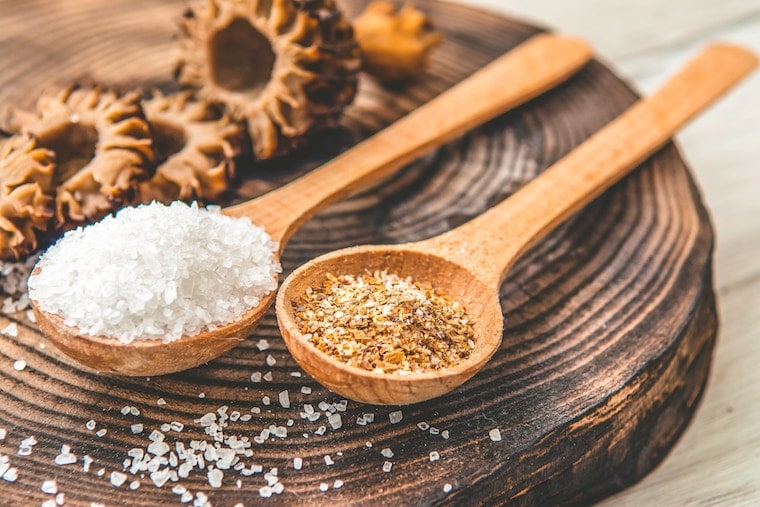
fatty acids
Long-chain polyunsaturated fatty acids (PUFA) are important for visual and cognitive development, blood pressure, and the immune system. The two most well-known PUFAs are omega-3 and omega-6. Most people get plenty of omega-6 in their diet, but omega-3 can be a little trickier. There are 3 types of omega-3’s: ALA, EPA, and DHA. ALA is found in nuts and seeds (try grinding them up first to increase absorption), legumes, and animal products. This omega-3 is used to create EPA and DHA, which are found to have the most beneficial effect on our health.
However, this conversion of ALA to EPA and DHA is limited, therefore it is important to get these in your diet as well. EPA and DHA are mainly found in fish sources which can be an issue for those avoiding animal products but you can also find them in other marine based algae products, (and there are vegan supplements you can buy- like this one I like).
getting enough omega-3s
If you choose to eat fish, then try to get at least 2 servings a week. If you avoid this, speak with a Registered Dietitian or doctor to discuss other ways to get these important nutrients.
The authors noted that vegetarian diets (in particular) and vegan diets can provide an array of benefits. These groups tend to consume more vegetables and fruit. This provides antioxidants, fibre, and more monounsaturated and polyunsaturated fatty acids.
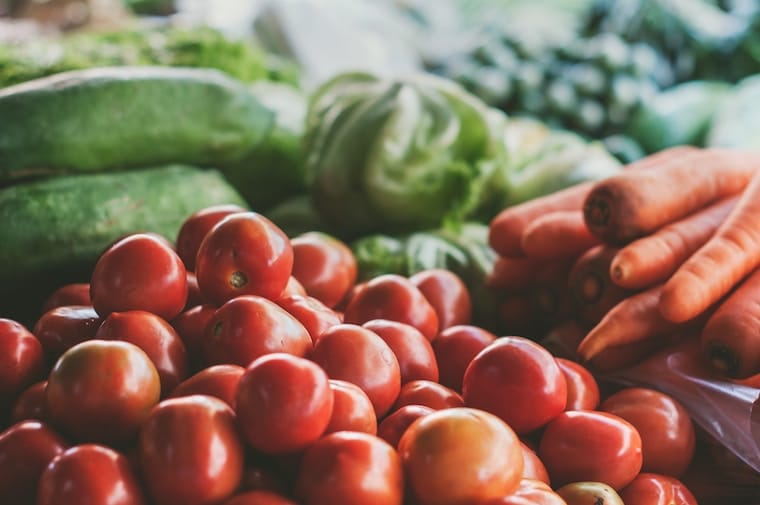
Nutritional Content of Cow’s Milk vs. Plant-based Beverages
Based on the position statement, cow’s milk is recommended after the age of 9-12 months of age. Infants should be consuming solely breast milk until 6 months of age and then slowly introduced to solid foods. The reason cow’s milk is the “go-to” drink is because of its nutritional composition. Per cup, cow’s milk (3.25% milk fat, recommended for children under 2) contains about 8 grams of protein, 300 mg of calcium, and half the RDA of vitamin B12. It also is a good source of magnesium, vitamin A, riboflavin, vitamin B6, and iodine.
Okay, what about the other beverages?
Fortified soy beverage is your next best option in terms of protein. In one cup of unflavoured fortified soy beverage, you get about 7.4 grams of protein, half the RDA of vitamin B12, and 319 mg of calcium. It also has similar nutrients to cow’s milk and is fortified with vitamin D. A new option, Pea Milk, is also a comparable choice IF you are purchasing in the USA. Canadian Ripple is not fortified the way it is in USA. We go into DETAIL outlining the different vegan milk alternatives here. So, why isn’t it recommended in the position statement? Well, for adults, this is definitely a great alternative to milk to meet your protein needs.
However, children need fat and calories! Sarah Remmer, RD stated “The problem here is that, because it’s high in protein, it fills precious space in a toddler’s stomach (which is really small), and without having the fat, depending on how much a toddler is drinking, it could maybe contribute to that toddler not getting enough fat overall. One of the benefits to whole cow’s milk is the fat content, which growing toddlers need. I would say, instead, to continue with a soy-based, vegan infant or toddler formula vs. soy milk until two years and offer [it] via a cup with meals, just like you would milk.”
By using this formula, you are still providing your child with the important healthy fats they need for proper growth and development until the 2 year mark when it’s acceptable to cut back on the fat.
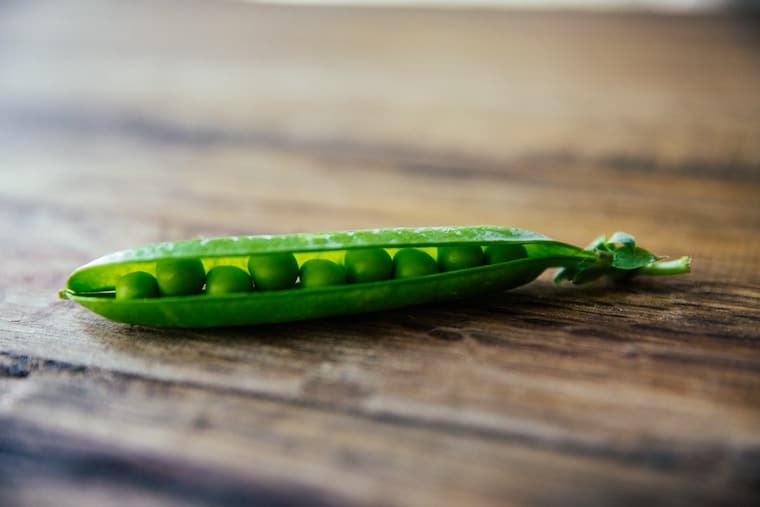
If you’re curious about how other plant-based vegan milk substitutes stack up, I suggest checking out the breakdown we did here.
In this post I also spoke to another colleague who suggested that if you really want to give fortified soy milk or Ripple pea milk (again, USA followers only) instead of dairy or soy formula, then you must ensure you’re amping up the fat and calories elsewhere in baby’s diet.

So is Raising an Infant Vegan Safe and Healthy?
Yes, of course it CAN be. However, you must be diligent in your meal planning and ensure baby’s growth is being tracked by her doctor. Recently, a Belgian couple were sentenced to a 6-month suspended jail sentence for feeding their child an “alternative” milk diet which led to the unfortunate death of their child. Alternative diets can be life-threatening when it’s not handled with caution, education and care.
Another example is a case study from Spain. An 11-month-old was brought to hospital and diagnosed with scurvy from low vitamin C as well as low vitamin D. The child had osteopenia, cortical thinning, Wimberger ring, Frankel line, fracture, and periosteal reaction. These are all issues with bone development. An x-ray also showed there were vertebral fractures and wide intervertebral spaces. This means his spine was weak.
vitamin c
Vitamin C is an important antioxidant and also plays a crucial role in collagen synthesis. When plant-based beverages are processed the biological activity of vitamin C disappears. The authors suggest that complementary feeding of fruits (e.g., orange, peppers, kiwi) with the plant-based beverage would have helped avoid this. They also noted that intake of vitamin C and D, calcium, zinc, and iron were much lower than the recommended amounts for this age. The infant was immediately switched off of the almond-milk infant formula.
Eventually, his nutrient deficiencies improved and there was improvement in his leg pain. After 8 weeks, he was able to start walking. There is no information about neurological impacts, however.
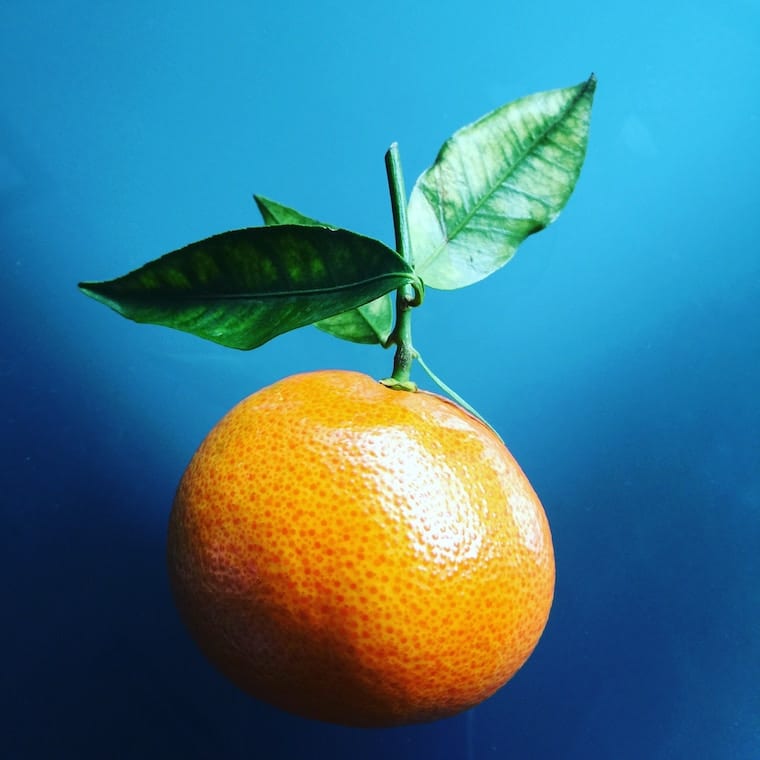
These are EXTREME cases, so I don’t want to start fear mongering and mom shaming here. I truly believe children CAN thrive on a plant-based diet. I just also believe that it’s important to go into it well informed and with a flexible attitude that might mean deviating from you (as a parent)’s own ideals in the event the diet isn’t going so well for your child.
So Do Babies NEED Cows Milk?
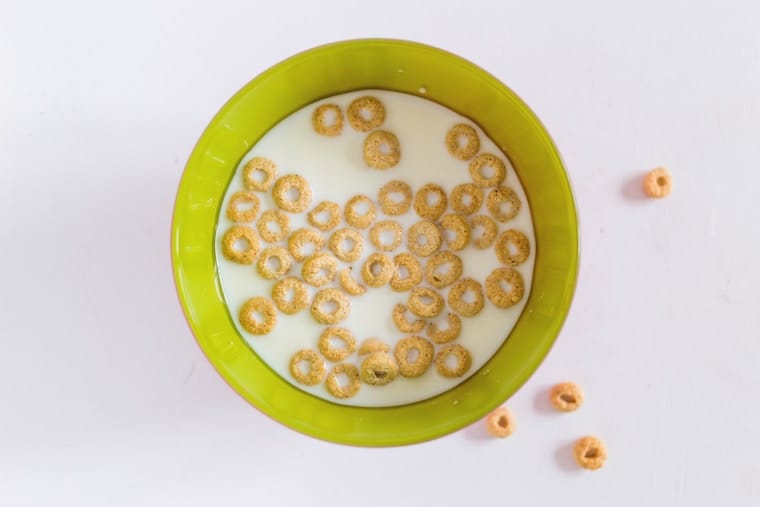
When asked if veganism fits into an infants diet, Sarah Remmer, RD responded with this. “It can, although it can be very challenging. Parents need to be extremely vigilant in making sure that the important nutrients that kids would be otherwise getting largely from animal sources (protein, iron, calcium, B12, etc.) are met through plant sources. Because more selective eating (picky eating) typically happens between the ages of 2 and 7, it can be very challenging to ensure that all nutrient requirements (and energy requirements) are met, with a strict vegan diet.”
If the child is under 1 year, “it would be very important that the baby was still receiving breastmilk or formula until the age of one. This will be where the baby would be getting the majority of his/her nutrition. I would then focus on plant-based nutrient-dense foods. Some of these foods include beans, lentils, nut and seed butters, avocado, fruits, veggies and whole grains. If vegetarian, eggs and dairy provide a lot of nutrition too.” If nut allergies are of concern for your child, she suggests seed butters.
nutritional concerns with vegan/vegetarian diets
We asked Sarah if she thought there were any nutritional concerns with feeding a child a vegan or vegetarian diet. Her response: “Unless a parent was extremely careful about ensuring that their baby was meeting all nutrient requirements through plant-based foods (and supplements), it’s challenging (vegan). Vegetarian is a lot easier, especially if both eggs and dairy are included.”
To make sure you’re providing your child (over 6 months) with adequate nutrition while consuming a vegetarian or vegan diet, be sure you’re able to check off everything on this list.
meeting nutrition check list
- They continue to breastfeed OR is taking a soy-based, vegan infant or toddler formula OR 3.25% milk until 2 years of age
- Baby is trying different vegetables and fruit
- My kid is getting a variety of whole grains (e.g., whole grain bread, rice, quinoa, buckwheat)
- They eat various plant-based proteins, such as legumes, tofu, and nut/seed butters. If vegetarian, my child also eats dairy products (e.g., cheese, yogurt) and eggs, unless there is an allergy.
- I provide my child with different sources of omega-3’s. These include ground chia, hemp seeds, oil, ground nuts/nut butters, and fortified products (e.g., eggs, margarine)
- If my child is breastfeeding, he/she is getting 400 IU of vitamin D through vitamin D drops
- My child eats protein-rich foods (e.g., beans or lentils, fortified cereals, tofu, eggs) with a source of vitamin C (e.g., red peppers, oranges, kiwi) to increase absorption
- I am in communication with a Registered Dietitian and/or doctor continues to monitor my child’s growth and development and screens for any deficiencies
So are dietitians in bed with the meat and dairy industry?
No. As a regulated health professional, Registered Dietitians must disclose any conflicts of interest, such as being sponsored by a company or industry. In this case, we cannot say ‘This product is better than that product’ and must give balanced, evidence-informed advice. So, for example, for vitamin D, we cannot say “buy X-company’s products instead of Y-company’s products” if they both provide equivalent nutrition. We must also abide to a code of ethics that refrains us from misusing scientific research to benefit a cause.
This means that we must review scientific evidence and use our professional opinion in a non-biased manner. This protects you and the public. If you have any questions, please visit College of Dietitians.
do babies need cows milk? can infants thrive while vegan?

Everyone has a right to eat what they choose and we need to stop diet shaming. At the same time, we want to make sure that children get the proper nutrition they need to grow properly. As Sarah Remmer, RD mentioned, a vegetarian or vegan diet can fit, but it does take work.
bottom line
Always consult with a Registered Dietitian and/or doctor who is trained to deal with special diets such as this. They will not judge you for your decision to feed your child according to your values and beliefs. At the end of the day, we want to children to thrive and grow up to be healthy, long-living adults.
If you liked this post, you may like:
ARE VEGAN MILK SUBSTITUTES SAFE FOR PLANT BASED BABIES WHO DON’T DRINK COW’S MILK?
GOAT MILK VS COW’S MILK VS SHEEP MILK FOR BABIES
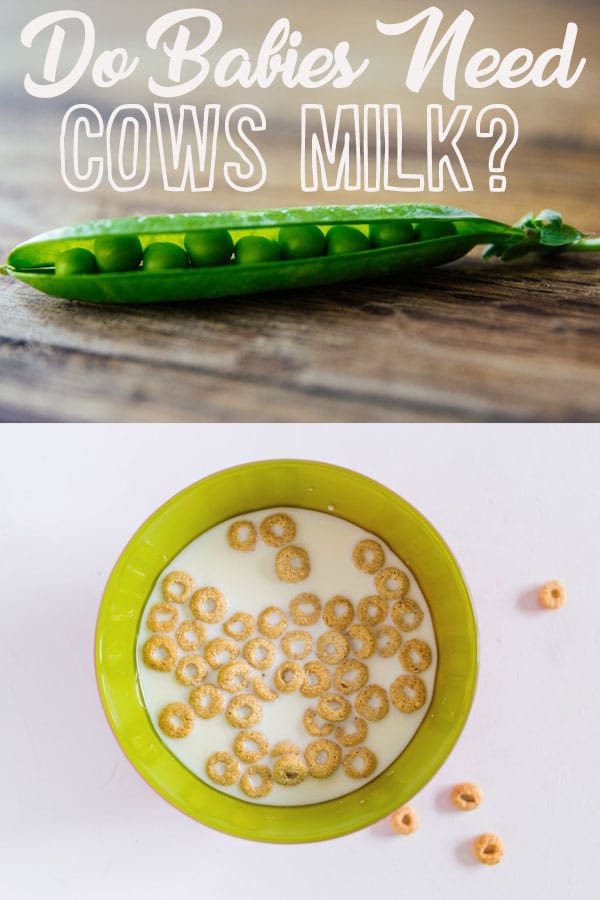
Contribution by RD2B Katey Davidson
Updated on May 17th, 2023

Abbey Sharp is a Registered Dietitian (RD), regulated by the Ontario College of Dietitians. She is a mom, YouTuber, Blogger, award winning cookbook author, media coach specializing in food and nutrition influencers, and a frequent contributor to national publications like Healthline and on national broadcast TV shows.
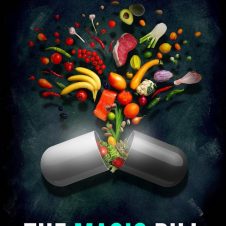
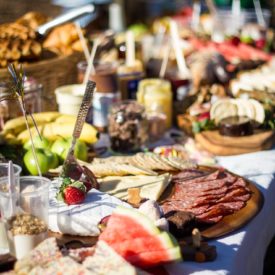
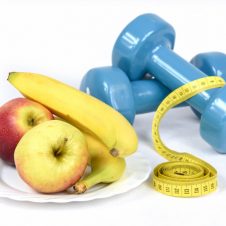

arshemis says
The article was very useful
Abbey Sharp says
Glad you liked it 🙂
Stefan says
My wife and I have been on a whole-food plant based diet for over two years now and we never felt better. We now have a thriving and healthy son who just turned one year old. My wife is still breastfeeding, but we have been supplementing with soy-based formula and solids after our son turned 6 months.
Nutrition has been a big topic in our family for several years now, we try to have an open mind, and always look to improve our knowledge. Despite the fact that my wife and I feel great with our diet, we understand that the needs of a young child can be different. This is why we try to read from all kinds of sources and views to make sure we have all the bases covered.
I do not believe most dieticians are in bed with the meat and dairy industry, in fact, I have never even heard of that prior to reading this post. However, I strongly believe that certain institutions providing the research to dieticians are absolutely in bed with the meat and dairy industry.
I appreciate Abbey’s post and found it informative. However, it’s quite obvious that she favors meat and dairy consumption over a plant-based diet. At the same time, I also believe that she has written this with good intentions and wasn’t pushing these views for any other reason that her own belief and knowledge.
What I don’t like about this post is that it makes the reader believe that eating animal products is the easy, safe and healthy way, and while you can also be healthy on a vegan diet, it is very difficult and risky to do so. That is simply not true. It is in fact, quite easy to be healthy on a vegan diet, but it does take time, but that is true no matter if you choose to consume animal products or not. I also believe that the cases mentioned about children dying on a vegan diet were completely unnecessary. Obviously, a child is malnourished if they only consume almond milk, I promise you the same would happen if a child or a grown up for that matter was just consuming McNuggets and Coke every day.
In my opinion, the article also fails to mention that animal products come with a lot of bad nutrients, such as cholesterol. Countless research proves time and time again that we do not need to consume cholesterol and that it is a direct link to heart and other chronic diseases. There is also a lot of research that shows the direct link of consuming animal protein to cancer.
Now you choose. Go the “easy” way and consume the Standard American Diet (S.A.D.), and while you cover the basic nutrients, you will also increase your risk for chronic diseases. Or you go with the “hard” way and consume a Whole Food Plant-Based Diet (W.F.P.B), and while you cover the basic nutrients, you also fill your body with many more rich antioxidants and significantly decrease the risk for chronic diseases.
Finally, let’s not forget that diet isn’t the only factor to be healthy. Stress and sleep, friendship and love, are all just as important.
Abbey Sharp says
Hi Stefan, thanks so much for your comment. The research we used in this post, and all our posts for that matter, come from peer reviewed papers, not the meat and dairy industry. My philosophy has always been that everything can be consumed in moderation and I am constantly touting the many benefits of including more plant based foods in our diet. And I agree that diet is not the sole driver of health. Thanks again for sharing your thoughts with us!
katie taylor says
Interesting post, appreciated.
However, my main question is if babies need cows milk not if they are vegan or not, just in general. I don’t plan to use an alternative milk. If they don’t NEED cows milk, then I don’t think they need any of our new synthesized ‘milks’ either.
My baby is almost one. I don’t drink milk, haven’t for years, mostly because of the U.S. dairy industry (poor quality). If we had access to truly free-range, grass-fed, organic, unprocessed cow’s milk, then I would consider it for my babe. I don’t, so I’m trying to figure out if she will miss out on nutrients to just be transitioned to water and whole foods after she weans. I plan to do baby-initiated weaning and if we’re still nursing at 16 – 17 months, I will stop offering and nudging towards more snacks in place of breastmilk. Snacks here are veggies, fruits, whole grain, yogurt & cheese (organic, grass-fed, raw when available). She is a great eater, loves her food… haven’t introduced nut butters yet and limit grains at this point, but beginning to introduce more.
So, my question remains: Eating meat, eggs, butter, lots of veggies, fruits, and whole grains, a whole-food diet – will she be missing something if we skip the cows milk in sippy cups?
We do water with her meals now and she laps it right up! It is challenging to find a clear answer on this question. I’d appreciate any insights you have!
Thank you,
katie
Abbey Sharp says
Thanks for the question I’ll update this and no they do not as long as they’re getting water and other forms of calcium and vitamin D (ie they eat other dairy products really readily and other non dairy calcium) in their diet. I’ll do a follow up post on that!
Peter Strub says
FYI, you can purchase almond milk without sugar, in fact; it is our preference. To illustrate the ingredients of Almond milk with added cane sugar in your presentation, showed bias. Vitamin D is added to cow’s milk, it does not occur naturally.
The research from medical doctors such as Esselstyn, Ornish, Barnard, Fuhrman, McDougall, just to name a few, contradict your insights. I’m skeptical regarding your opinions, largely because the ADA and the meat industry, have a tremendous influence lobbying congress and funding studies/research that have a direct impact on the USDA dietary guidelines, much like the chocolate candy industry funded many of the studies to market chocolate as having health benefits, however; it proved now, there aren’t any health benefits in consuming chocolate. Interestingly, a number of cultures devoid of animal proteins were also devoid of cancer, diabetes and heart disease. As a whole plant based consumer myself for over 7 years, I’ve lost weight, dropped my lipids and have a greater energy capacity than in previous years. Food consumption is just part of the equation for healthy living, there is also exercise, environment, stress management and spiritual well being, etc., yet nutrition is the leading factor. There are now a number of studies amid new research that might challenge your views and perhaps help you to become a more critical thinker.
Abbey Sharp says
Hi Peter, we actually chose to include almond milk with sugar because it provided a greater amount of calories. I plan on reviewing this post, so thank you so much for your comments.
Hayley says
I found this post very one sided… you proved this by braking down the sugar in a Vanilla almond… no parent would opt for vanilla almond
Julie @ Running in a Skirt says
What a fascinating subject! I never thought how hard it could be for babies to get by on their parents vegan diet. Lots to consider and think about!
Abbey Sharp says
Totally! Thanks Julie
Rachel says
Such a controversial topic… as are all the topics relating to babies and children. We talk about that a lot in my mom’s group.
Abbey Sharp says
Definitely a hot topic.
Deborah Brooks says
The thinking on infant and child nutrition is constantly changing isn’t it? Thanks for keeping us informed on this
Abbey Sharp says
Definitely is. Thanks Deborah
Rebecca says
Thanks for writing this Abbey, what a great unbiased look at the potential risks and benefits to alternative milk sources. So many people just think that if it’s ‘good’ for adults, it’s good for kids & babies, but we all have different needs. Knowledge is power & I hope this can help people be aware of the nutritional differences between these products & make the best decision for their baby.
Abbey Sharp says
Definitely! This information is so important, and it’s best we do the most research we can!